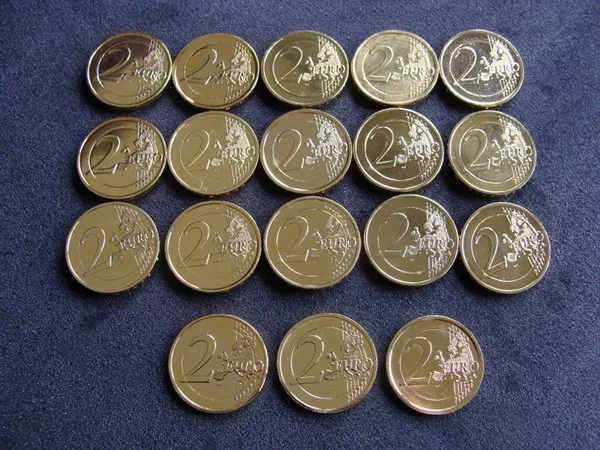The global economic landscape has long been dominated by two major currencies—the US Dollar and the Euro. As the European Union continues to strengthen its economic and political ties, questions arise about the Euro’s potential to surpass the dollar in international prominence. This article delves into the key factors influencing the competition between the Euro and the Dollar, examining economic indicators, geopolitical developments, and the evolving role of central banks.
Economic Indicators:
One of the primary indicators of a currency’s strength is its economic performance. The Eurozone, comprising 19 of the European Union’s member states, has showcased resilience and recovery in recent years. The region’s GDP has consistently grown, and fiscal policies have become more synchronized. However, the United States, with its robust economy and technological innovation, remains a formidable force.
The Euro’s value against the dollar fluctuates based on various economic factors. Trade balances, interest rates, and inflation rates play pivotal roles. The European Central Bank’s monetary policy decisions and the Federal Reserve’s actions significantly impact the exchange rates. While the Euro has made strides, its ability to surpass the dollar depends on sustained economic growth and stability within the Eurozone.
Geopolitical Developments:
Geopolitical events can reshape the dynamics of global currencies. The Euro faces both challenges and opportunities in this regard. Brexit, the departure of the United Kingdom from the European Union, posed a significant geopolitical challenge. However, the Eurozone has demonstrated resilience, emphasizing further integration and cooperation.
On the other hand, the dollar’s status as the world’s primary reserve currency has been a source of strength. The United States’ influence in global politics and its role in international institutions give the dollar an edge. The Euro’s potential to surpass the dollar may hinge on the European Union’s ability to navigate geopolitical challenges effectively and assert itself on the global stage.
Central Banks and Monetary Policies:
Central banks play a crucial role in shaping a currency’s strength. The European Central Bank (ECB) and the Federal Reserve implement monetary policies that influence interest rates, inflation, and overall economic stability. The Eurozone’s unconventional monetary policy measures, including negative interest rates and quantitative easing, have aimed to stimulate economic growth.
Similarly, the Federal Reserve has adopted accommodative policies to address economic challenges. The divergence in monetary policies between the ECB and the Federal Reserve can impact the relative strength of the Euro and the Dollar. For the Euro to surpass the dollar, the European Central Bank must strike a balance between stimulating economic growth and maintaining price stability.
Global Trade and Currency Preferences:
The internationalization of a currency is closely linked to its role in global trade. The dollar has been the dominant currency in international transactions for decades. Countries hold significant reserves in dollars, and commodities are often priced in dollars. The Euro has made strides in challenging this dominance, with an increasing number of international transactions being conducted in Euros.
The Euro’s potential to surpass the dollar relies on expanding its use in global trade and finance. Efforts to promote the Euro as an alternative reserve currency and encouraging countries to diversify their reserves could contribute to its ascendance. Trade agreements that facilitate transactions in Euros and reduce reliance on the dollar would strengthen the Euro’s position in the global economy.
Challenges and Opportunities:
While the Euro presents a credible contender to the dollar, it faces challenges that must be addressed for it to surpass the current global reserve currency. Structural issues within the Eurozone, such as differences in economic performance among member states, need to be addressed for sustained growth. Additionally, political unity and a coordinated approach to economic policies are essential for the Euro’s success.
Opportunities for the Euro lie in its potential as a stable and diversified alternative to the dollar. Strengthening ties with emerging economies, enhancing financial market integration, and addressing issues like the Eurozone’s democratic deficit can contribute to the Euro’s rise. The establishment of the Euro as a prominent global currency requires a concerted effort from European leaders and policymakers.
See also Is Now a Good Time to Buy Euros?
Conclusion:
The question of whether the Euro can surpass the dollar is complex and multifaceted. While the Euro has made significant strides in recent years, it faces challenges that necessitate careful navigation. Economic indicators, geopolitical developments, central bank policies, and global trade dynamics all play critical roles in determining the future trajectory of these currencies.
For the Euro to surpass the dollar, it must continue on its path of economic growth, address internal challenges, and assert itself in the international arena. The dollar’s dominance is deeply entrenched, but the Euro’s potential lies in its resilience, adaptability, and the collective efforts of European nations. As the global economic landscape evolves, the competition between these two currencies will undoubtedly remain a focal point of international economic discourse.


